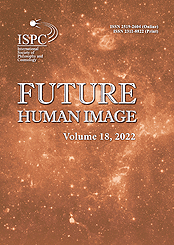Religious Symbolism in the Cinema: “One Hour Photo”
Religious Symbolism in the Cinema: “One Hour Photo”
Author(s): Oleksandr Pasichnik, Eugene PiletskySubject(s): Christian Theology and Religion, Transformation Period (1990 - 2010), Biblical studies, Film / Cinema / Cinematography, Sociology of Religion, History of Art
Published by: Международное философско-космологическое общество
Keywords: One Hour Photo; Seymour Parrish; gnosticism; Demiurge; early Christianity; religious symbolism; cinema; sin; punishment; sword;
Summary/Abstract: This study aims to identify religious symbols in the film (One Hour Photo) directed by Mark Romanek in 2002. The object of the study is the film “One Hour Photo” directed by Mark Romanek (2002); the subject is the religious symbolism contained in it. The scientific novelty lies in the fact that, for the first time, this film has been examined to identify religious symbolism. In the image of the main character, Seymour Parrish, some features are characteristic of the Demiurge-Yahweh in the ideas of the early Christian Gnostics. Being separated from his “mother”, the Aeon of Sophia, the Demiurge feels his imperfection. Similarly, Seymour, being a lonely person, misses his mother. He creates his own “world” in the form of photographs of the Yorkin family, just as the Demiurge shows both mercy and anger towards his “wards.” Just like the Demiurge-Yahweh, he punishes the “chosen” family, which he considers his own. The superhero toy Evangelion, shown in one of the episodes, symbolizes the deity’s punishing aspect. One of its attributes is a sword and a sword’s analog in the scene of punishment of “sinners” is the knife with which Seymour threatens Will and Maya. The punishment for Will Yorkin is caused precisely by his adultery, which in the texts of the Old Testament is often compared to the betrayal of his god. The biblical epiphany of the Demiurge-Yahweh is often reminiscent of the tornado (“the cloud pillar”) shown after the scene of Seymour’s punishment of the adulterers. The punishment itself contains several components. First, he erases Will’s face from the photos on the stand in his room. Second, he breaks into the hotel room where the lovers are and snaps a camera, forcing them to pose naked in love scenes. This is reminiscent of the biblical episode of the expulsion from the paradise of Adam and Eve. The final shot of the film is Seymour’s fantasy, where he imagines a photo of himself and the Yorkins as one family. This symbolizes the restoration of the original harmony marred by Will Yorkin’s “sin.”
Journal: Future Human Image
- Issue Year: 2022
- Issue No: 18
- Page Range: 35-41
- Page Count: 7
- Language: English

